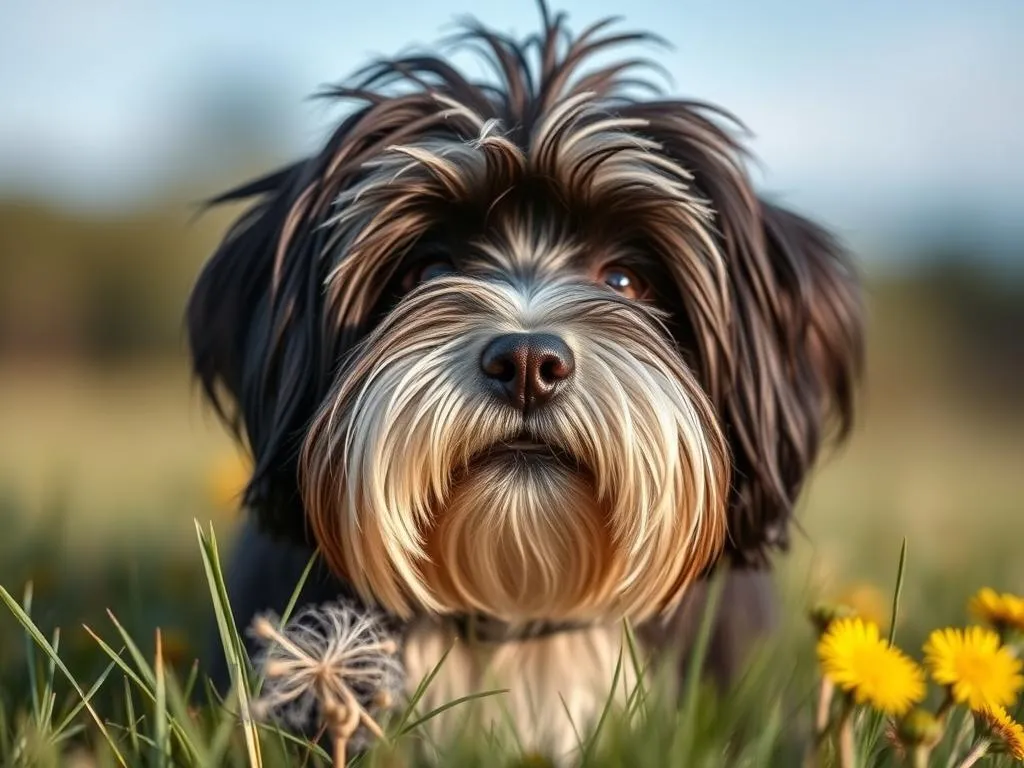
Introduction
Understanding dog breeds is essential for any potential dog owner. Each breed comes with its own unique traits, temperament, and care needs, which can significantly impact the lives of both the owner and the dog. Among the myriad of breeds, the Havanese stands out, not only for its charming appearance but also for its delightful personality.
The Havanese breed, known for its affectionate demeanor and playful nature, has become increasingly popular among families and individuals alike. With its rich history and endearing qualities, this breed makes a fantastic companion.
History of the Havanese Breed
Origins
The Havanese can trace its roots back to Cuba, where it was bred as a companion dog for the aristocracy. Its ancestors are believed to be small Spanish dogs brought to the Caribbean by traders and settlers. Influences from breeds such as the Maltese and the Bichon Frise contributed to the development of the Havanese.
Development
Throughout history, the Havanese has played a significant role in Cuban culture. Known as “Toys of the Nobles,” these dogs were cherished for their playful nature and companionship. They were often depicted in art and literature, solidifying their status as beloved pets. In the 20th century, the breed faced near extinction due to political changes in Cuba, but dedicated enthusiasts helped revive the Havanese outside the island. Today, they are recognized as a distinct breed with a loyal following.
Physical Characteristics
Size and Weight
The Havanese is a small breed, typically weighing between 7 to 13 pounds. They stand about 8.5 to 11.5 inches tall at the shoulder, making them ideal for both apartments and houses with limited space.
Coat and Color
One of the most striking features of the Havanese is its long, silky coat. The breed has a double coat that requires regular grooming to prevent matting. Common colors include black, chocolate, cream, gold, and various combinations of these hues.
Distinct Features
Aside from their beautiful coats, Havanese dogs have expressive eyes that convey a range of emotions, from joy to curiosity. Their tails curl over their backs, adding to their charming appearance. Overall, their compact size and elegant features make them a visually appealing breed.
Temperament and Behavior
General Temperament
The Havanese is known for its friendly, affectionate, and playful personality. They thrive on human interaction and are often described as “people-oriented” dogs. This breed is typically good-natured, making them an excellent choice for families and individuals alike.
Socialization
Socialization is crucial for Havanese puppies. Early exposure to different environments, people, and other animals can help them grow into well-adjusted adults. They are known to be good with children and tend to get along well with other pets, making them versatile companions.
Intelligence and Trainability
The Havanese is a surprisingly intelligent breed, which makes training a rewarding experience. They respond well to positive reinforcement techniques, such as treats and praise. It’s essential to start training early, as Havanese dogs can have a stubborn streak. Basic commands and obedience training can help channel their energy productively.
Health Considerations
Common Health Issues
Like all breeds, the Havanese may be prone to certain health issues. Common concerns include hip dysplasia, patellar luxation, and eye conditions such as cataracts. Regular veterinary check-ups can help catch potential health problems early.
Preventative Care
Preventative care is vital for the overall health of your Havanese. Routine vaccinations, parasite prevention, and dental care should be prioritized. Grooming should also be a regular part of your care routine to maintain coat health and prevent skin issues.
Care Requirements
Grooming Needs
The Havanese coat requires frequent grooming to keep it in good condition. Brushing should be done at least two to three times a week, with daily grooming recommended during shedding periods. Regular baths will also help maintain cleanliness and softness.
Diet and Nutrition
A balanced diet is essential for the health of your Havanese. High-quality dog food that meets their nutritional needs is recommended. Portion control is crucial, as this breed can be prone to obesity. Consult your veterinarian to determine the best diet for your dog’s age, weight, and activity level.
Exercise Requirements
Despite their small size, Havanese dogs need daily exercise to stay healthy and happy. A couple of short walks and playtime indoors or in a securely fenced yard are typically sufficient. They enjoy interactive play, so engaging them with toys can help channel their energy.
Living with a Havanese
Home Environment
Havanese dogs adapt well to various living situations, including apartments and homes with yards. They are not overly demanding in terms of space, but they do require a comfortable, safe environment where they can interact with their owners.
Companionship Needs
This breed thrives on companionship and does not like to be left alone for extended periods. If you work long hours, consider adopting a second pet or arranging for doggy daycare to meet their social needs. Havanese dogs are known for forming strong bonds with their owners, and they enjoy being part of family activities.
Traveling with a Havanese
Traveling with a Havanese can be an enjoyable experience, as they are generally well-behaved and adaptable. When traveling, ensure that your dog is secure in a pet carrier or seatbelt harness. Familiarize them with the new environment gradually, and bring along their favorite toys to ease any anxiety.
Finding a Havanese
Adoption vs. Breeder Purchase
When considering adding a Havanese to your family, you have the option to adopt from a rescue organization or buy from a reputable breeder. Adoption can be a rewarding experience, giving a dog a second chance at a loving home. However, if you choose to go through a breeder, ensure they adhere to ethical breeding practices.
Choosing a Responsible Breeder
If purchasing from a breeder, ask specific questions to gauge their commitment to the breed. Inquire about health testing for common issues and request to see the puppy’s parents. A responsible breeder will prioritize the health and temperament of their dogs over profit.
Havanese Rescue Organizations
There are several reputable rescue organizations dedicated to Havanese dogs. These groups often have a range of dogs available for adoption and can provide valuable information about the breed. Connecting with a rescue can also offer insights into the breed’s needs and characteristics.
Conclusion
The Havanese breed is a delightful combination of charm, intelligence, and affection. With their rich history and unique personality traits, they make excellent companions for various lifestyles. Their care requirements, including grooming, diet, and socialization, should be thoughtfully considered by potential owners.
Before bringing home a Havanese, assess whether your lifestyle aligns with the breed’s needs. If you can provide the love and attention they require, a Havanese may just be the perfect addition to your family.
Understanding the nuances of dog ownership is crucial, and further research can enhance your knowledge and preparation. Enjoy the journey of finding the right dog to enrich your life!









